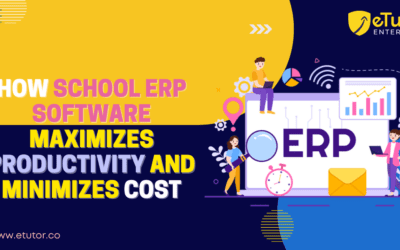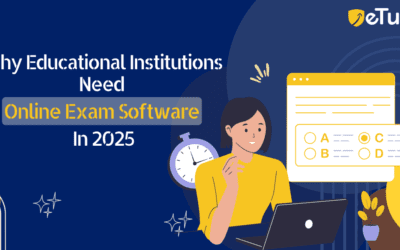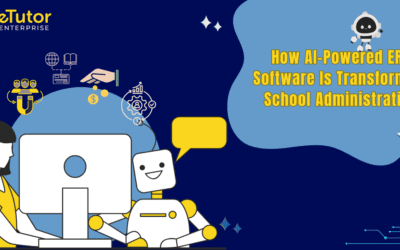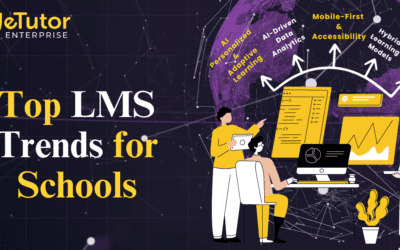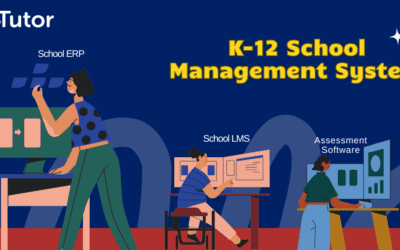Benefits of implementing Learning Management System (LMS) and ERP
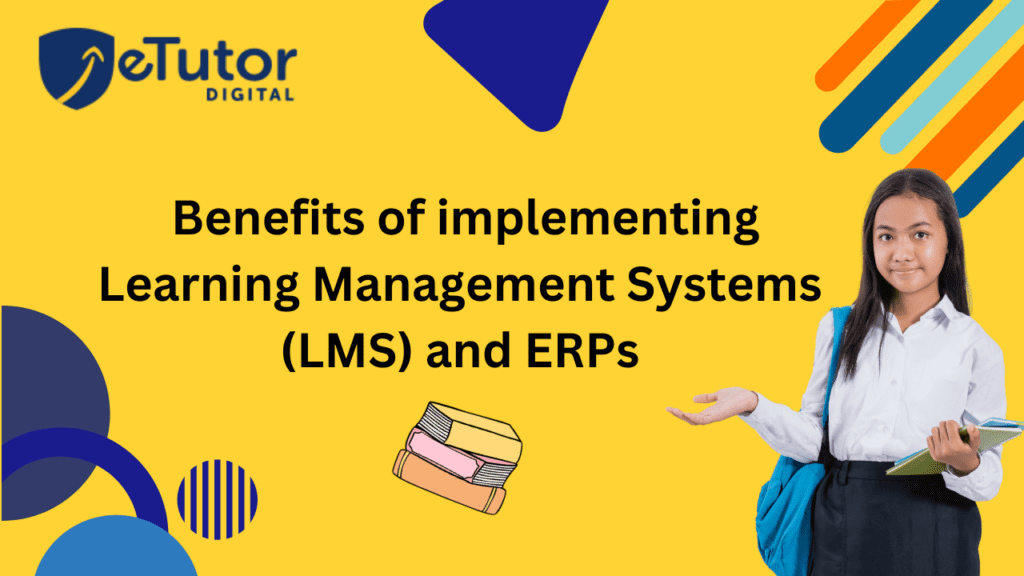
Table of Contents
ToggleIntroduction
In the digital age, educational institutions face increasing demands for efficiency, accountability, and improved learning outcomes. Implementing Learning Management Systems (LMS) and Enterprise Resource Planning (ERP) systems can be transformative. These systems streamline administrative tasks, enhance communication, and personalize learning experiences.
This blog will explore the top eight benefits of implementing LMS and ERP systems and how eTutor ERP and LMS specifically bring these benefits to life.
What are LMS and ERP Systems?
Learning Management Systems (LMS) are platforms designed to facilitate the administration, documentation, tracking, reporting, and delivery of educational courses or training programs. LMS platforms enable educators to create and deliver content, monitor student participation, and assess performance.
Enterprise Resource Planning (ERP) systems integrate various functions across an organization into one complete system to streamline processes and information across the entire organization. For schools, ERP systems can manage everything from admissions and enrollment to finance and human resources.
Top 8 Benefits of Implementing LMS and ERP Systems
1. Enhanced Administrative Efficiency
One of the primary benefits of an ERP system is the significant boost in efficiency and productivity it offers. By automating routine tasks, such as scheduling, attendance tracking, and grade management, an ERP system reduces the administrative burden on staff. This allows educators to focus more on teaching and less on paperwork, ultimately improving the overall productivity of the institution.
Similarly, an LMS enhances efficiency by providing a centralized platform for managing and delivering educational content. Teachers can easily create, upload, and organize learning materials, while students can access these resources anytime, anywhere. This seamless access to educational content ensures that learning is continuous and uninterrupted.
2. Streamlined Communication
LMS and ERP systems provide centralized platforms for communication between students, teachers, and parents. Notifications, updates, and important information can be disseminated quickly and efficiently, ensuring everyone stays informed and engaged.
3. Improved Data Management
Effective data management is another crucial benefit of implementing an ERP system. With an ERP, schools can maintain a single, unified database that stores all essential information, from student records and academic performance to financial data and inventory. This centralized data management system ensures data accuracy, consistency, and easy accessibility, leading to better decision-making.
An LMS also contributes to improved data management by tracking and recording student progress and performance. Educators can monitor student engagement, identify learning gaps, and personalize instruction based on individual needs. This data-driven approach helps in enhancing student outcomes and success.
4. Streamlined Administrative Processes
Administrative tasks can be time-consuming and prone to errors when handled manually. An ERP system streamlines these processes by automating tasks such as admissions, fee management, and reporting. This not only reduces the likelihood of errors but also saves time and resources.
In the realm of learning management, an LMS streamlines processes by providing tools for course creation, assignment management, and communication. Teachers can efficiently manage their classes, track student progress, and provide timely feedback, making the educational process more organized and effective.
5. Better Resource Allocation
Efficient resource allocation is essential for the smooth functioning of any educational institution. An ERP system helps in better resource management by providing insights into resource utilization and identifying areas where improvements can be made. This ensures that resources such as classrooms, equipment, and finances are optimally used.
An LMS aids in resource allocation by enabling schools to offer a wide range of courses and learning materials without the need for physical infrastructure. This digital approach to learning reduces the dependency on physical resources and makes education more accessible and inclusive.
6. Enhanced Learning Experience
An LMS significantly enhances the learning experience by providing interactive and engaging content. Features such as multimedia presentations, quizzes, and discussion forums make learning more dynamic and enjoyable. Students can learn at their own pace, revisit challenging topics, and engage in collaborative learning activities.
The benefits of implementing an ERP system also extend to the learning experience. By providing real-time access to academic records, schedules, and resources, ERPs empower students to take control of their learning journey. This transparency and accessibility lead to a more student-centered approach to education.
7. Cost Savings
Implementing an ERP system can lead to substantial cost savings for educational institutions. By automating processes and reducing the need for manual intervention, schools can cut down on administrative costs. Additionally, the insights provided by an ERP system help in making informed financial decisions, further enhancing cost efficiency.
Similarly, an LMS reduces costs by minimizing the need for physical learning materials and infrastructure. Digital resources can be reused and updated easily, reducing printing and distribution expenses. Moreover, online learning eliminates travel and accommodation costs for both students and educators.
8. Scalability and Flexibility
Both LMS and ERP systems offer scalability and flexibility, making them ideal for institutions of all sizes. As schools grow and evolve, these systems can be easily scaled to accommodate increasing numbers of students and staff. Additionally, cloud-based LMS and ERP solutions provide the flexibility to access systems from anywhere, at any time.
This scalability ensures that the benefits of LMS and ERP systems can be realized long-term, supporting the institution’s growth and development.
How eTutor ERP and LMS Bring These Benefits?
eTutor ERP and LMS are designed to deliver these benefits effectively:d
Conclusion
Implementing LMS and ERP systems in educational institutions brings numerous benefits, from enhanced efficiency and communication to personalized learning and cost savings.
Our ERP for schools and LMS for schools exemplify these advantages, providing schools with the tools they need to succeed in today’s digital landscape.
Investing in both the systems is a strategic move towards achieving operational excellence and improved student outcomes.
Recent Posts
- NTA-Based Hybrid Assessment Software for IIT-JEE Mains, Advanced & NEET
- eTutor Offline Exam Software for IIT-JEE, NEET, and Foundation with Student Performance Analytics
- NEET Test Generator for Academies & K-12 Schools
- How School ERP Software Maximizes Productivity and Minimizes Cost
- How Does ERP Software for Schools Help Educators?

